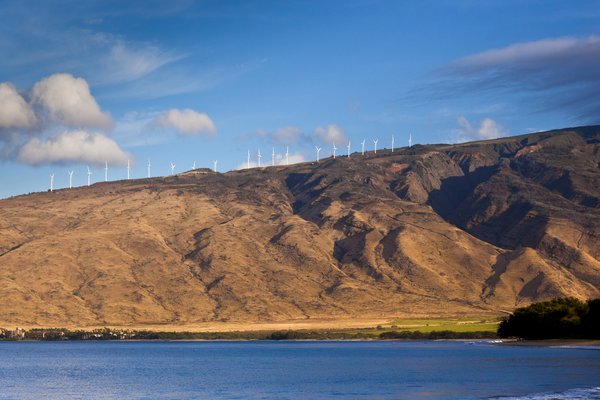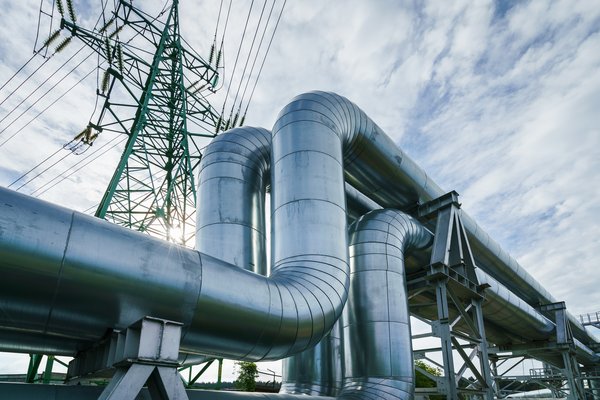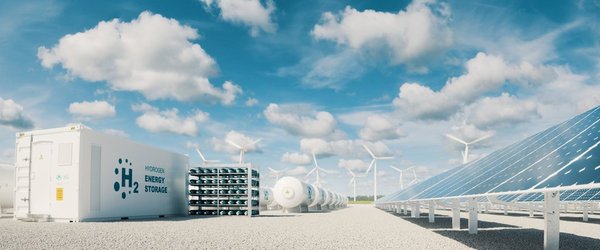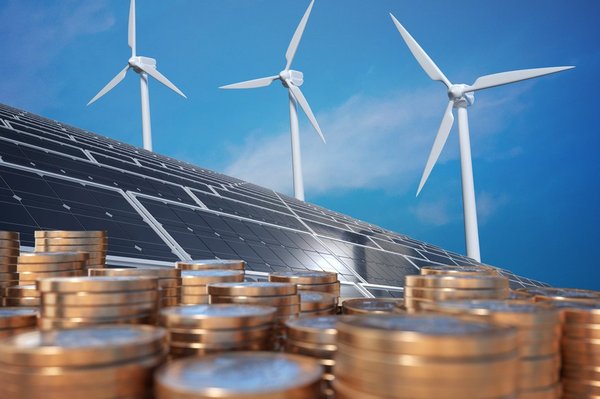Natural gas is a vital fuel source. We use it to produce power, heat our homes, and for other residential, commercial, and industrial functions. It's an abundant and cheap fossil fuel.
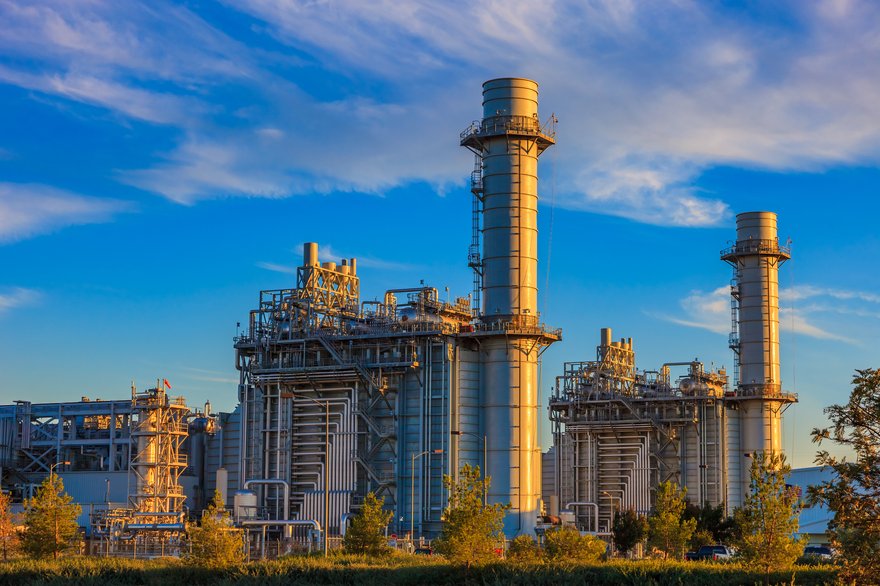
Natural gas may be a critical "bridge fuel" during the energy transition to lower-carbon alternatives. It can help bridge the gap by supplying cleaner baseload power and helping to offset the intermittency issues of wind energy and solar power. In places where renewable energy is not available, there will frequently be a need for natural gas. The European Union's desire to phase out Russian gas imports in response to the invasion of Ukraine has created dislocation in the market and medium-term tightness in supply.
Given the unique characteristics of natural gas, demand is on track to continue growing. The International Energy Agency (IEA) sees natural gas demand rising by 5% annually from 2021 to 2030 in its Stated Policies Scenario (STEPS). However, natural gas demand is expected to be flat from 2030 to 2050 in the same scenario.
Top natural gas stocks in 2024
Top natural gas stocks in 2024
Although oil is the largest energy market, natural gas plays an important role. As a result, several companies focus on it. Some of the best natural gas stocks for investors to consider buying include:
| Natural Gas Stock | Ticker Symbol | Market Capitalization | Description |
|---|---|---|---|
| Cheniere Energy | $35.9 billion | One of the world's largest liquefied natural gas (LNG) exporters. | |
| EQT Corporation |
(NYSE:EQT) |
$16.5 billion | The largest natural gas producer in the U.S. |
| Kinder Morgan |
(NYSE:KMI) |
$39.5 billion | One of the largest natural gas infrastructure companies. |
1. Cheniere Energy
1. Cheniere Energy
Cheniere Energy is the largest liquefied natural gas (LNG) producer in the U.S. and the second-largest in the world. It’s a full-service LNG provider that obtains, transports, liquefies, and delivers natural gas. Cheniere also has vessel-chartering capabilities.
It has one of the largest LNG platforms in the world. In early 2023, Cheniere Energy owned interests in and operated two liquefaction and export facilities along the U.S. Gulf Coast:
- Sabine Pass LNG Terminal: Located in Louisiana, the terminal has six operating LNG trains with the capacity to produce 30 mtpa (million metric tons per annum) of LNG. Cheniere owns an interest in Sabine Pass via its stake in Cheniere Energy Partners (NYSEMKT:CQP).
- Corpus Christi LNG Terminal: The Texas terminal has three operating LNG trains with the capacity to produce 15 mtpa of LNG. Cheniere is constructing an expansion to the Corpus Christi LNG Terminal, a project known as Corpus Christi Stage 3. Management believes it will add more than 10 mtpa of additional capacity.
Cheniere sells the bulk of its LNG under long-term, fixed-rate contracts, enabling the company to generate predictable cash flow. It expects to produce a cumulative $12 billion in free cash flow from 2022 to 2027.
The natural gas export company plans to allocate this cash flow for dividend payments (which it initiated in late 2021), repurchasing shares, paying down debt, and funding Corpus Christi Stage 3. Its balanced capital allocation plan should enable Cheniere to create significant value for its shareholders in the coming years.
2. EQT Corporation
2. EQT Corporation
EQT Corporation is the largest natural gas producer in the U.S. The company focuses on producing gas from the Appalachian Basin, which stretches across Pennsylvania, West Virginia, and Ohio.
EQT aims to continue to be a consolidator in the natural gas sector. It purchased Alta Resource Development for $2.9 billion in 2021 and Chevron's (CVX 0.37%) Appalachian Basin assets for $735 million in 2020. EQT also announced an agreement to make a $5.2 billion bolt-on acquisition of Tug Hill's upstream assets and XcL Midstream's gathering and processing assets in 2022.
Assuming the Tug Hill deal is approved by the Federal Trade Commission in 2023, EQT would own 1.1 million acres in the core of the Marcellus Shale. If EQT were a country, it would be the 12th-largest gas producer in the world.
EQT's size gives it scale advantages and makes it one of the world's lowest-cost natural gas producers. The company also has the best credit profile in its peer group, giving it access to low-cost debt and further reducing costs, which positions EQT to generate significant free cash flow.
The company expects to produce more than $12 billion in cumulative free cash flow between 2022 and 2027. While that assumes competitive natural gas pricing at early 2022 levels, the company also uses hedges to help mute the impact of volatility. Meanwhile, it has an upside potential if prices rise.
EQT expects to use some of its free cash flow to repay debt and strengthen its balance sheet. The debt reduction could leave the company with ample cash for other shareholder-friendly activities such as dividends, share repurchases, and accretive acquisitions. The company also reinstated its dividend in late 2021, which it intends to increase over time.
3. Kinder Morgan
3. Kinder Morgan
Kinder Morgan is a leader in operating energy infrastructure in North America. It controls the nation's largest natural gas transmission network, which moves 40% of the natural gas produced in the U.S. As of early 2023, it had 70,000 miles of natural gas pipelines to go along with 700 billion cubic feet of storage capacity -- the latter representing about 15% of the U.S. storage total. Kinder Morgan's infrastructure connects every major natural gas resource play to key demand centers.
In addition to natural gas, Kinder Morgan is also the largest independent transporter of refined petroleum products, independent terminal operator, and carbon dioxide transporter. The company transports oil, renewable natural gas (RNG), and LNG.
Kinder Morgan's leading natural gas infrastructure business generates very stable cash flow. Overall, 94% comes from take-or-pay contracts, other fee-based arrangements, or hedges, which allowed it to generate $3.3 billion in free cash flow in 2022.
Kinder Morgan allocates its cash flow toward paying a high-yielding dividend, repurchasing shares, and expanding its natural gas network through capital projects and acquisitions.
Acquisitions have become a notable growth driver in the past year. Kinder Morgan made two substantial deals in 2021. The company bought Stagecoach Gas Services, a pipeline and storage network in the Northeast, for $1.22 billion. It also bought Kinetrex Energy, an RNG producer, for $310 million. And in 2022, it acquired North American Natural Resources, an RNG facilities company, for $135 million.
Kinder Morgan's energy transition ventures business unit (launched in 2021) aims to identify, analyze, and pursue commercial opportunities as the energy sector transitions to lower-carbon fuel sources. Kinder Morgan's extensive natural gas infrastructure footprint makes it potentially suited to store and transport lower-carbon fuel sources such as RNG and hydrogen, positioning it for the future of energy.
A brief overview of the natural gas market
A brief overview of the natural gas market
Natural gas is an abundant, low-cost, and versatile fuel, but it has some critical limitations. In its gaseous form, it must travel by pipeline, making infrastructure essential for the natural gas industry.
Pipeline companies must build and operate the midstream infrastructure, such as pipelines, processing plants, and storage facilities, to transport gas from production basins to end markets. Meanwhile, natural gas needs to become a liquid for transportation overseas.
Infrastructure companies often make the best natural gas stocks. This is because they're less susceptible to the energy industry's cyclical nature and pricing volatility. Most natural gas infrastructure companies generate stable cash flow by collecting fees as natural gas moves through their network, giving them a "toll booth" business model.
Related investing topics
The secret to finding top natural gas stocks
Demand for natural gas should continue expanding in the coming years. In some ways, it's the cleanest fossil fuel, making it an excellent bridge to renewable energy.
However, like oil, the price of natural gas can be pretty volatile. Investors should understand the risks before buying natural gas stocks.
One secret to uncovering the best natural gas stocks is to focus on the lowest-cost producers. These companies should still be able to make money when prices decline. Another critical criterion is finding gas producers that have strong balance sheets, giving them the financial flexibility to withstand economic turbulence.
Investing in natural gas infrastructure companies that own pipelines and LNG export facilities is an alternative. Infrastructure companies should benefit from growing gas demand without direct exposure to pricing. In addition, infrastructure companies tend to pay attractive dividends.
The key is finding natural gas stocks that can benefit from the sector's long-term growth potential while also being able to weather the inevitable storms of volatility.
FAQs
Natural gas stocks FAQs
What are the best natural gas stocks?
The best stocks feature either ultra-low production costs or generate steady fee-based income from long-term contracts. As one of the largest and lowest-cost natural gas producers, EQT stands out as a top natural gas stock. Likewise, the steady cash flow generated by natural gas infrastructure companies such as Kinder Morgan and Cheniere Energy makes them stand out as top natural gas stocks.
What is liquified natural gas?
Liquefied natural gas, or LNG, is the liquid form of natural gas. In its natural gaseous state, it can't go on ships for export to global markets. Instead, specialized facilities supercool the gas to turn it into a liquid, which can go on gas-carrying vessels intended for international markets. LNG is attracting heavy interest because it's an option to replace Russian gas in Europe.
Is natural gas a good investment?
Natural gas investment has been challenging in recent years due to oversupply and volatile pricing. However, demand for the fuel should continue to grow in the coming years, benefitting natural gas stocks. Consequently, it could be a good investment over the long term.










